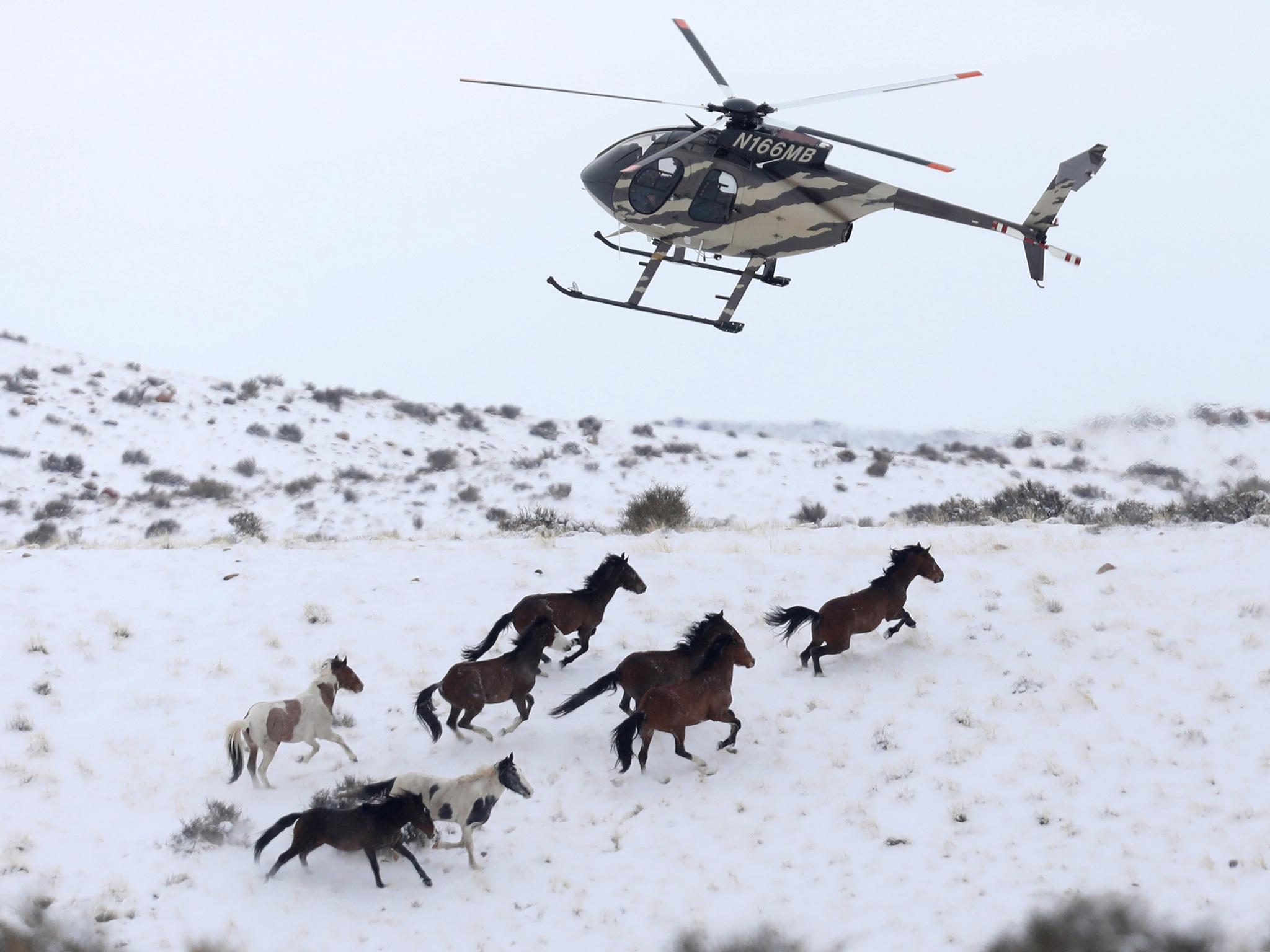American prisoners are training wild horses to patrol Mexican border
The Western United States is home to 55,000 Mustangs, double the number the land can support. Now a prison programme in Arizona is helping the men and the horses to come to terms with life behind bars and giving both future skills for the outside

Long before the desert sun has had a chance to heat the dusty prison yard, 20 inmates at an Arizona state prison begin quietly tending horses. The men – many with violent histories – gently manoeuvre bits into the mouths of mustangs still unaccustomed to human touch; they remove caked mud from hooves and tighten girths against bulging bellies. And the horses, which just weeks ago roamed free, mostly comply with what is asked of them.
The men and the horses are still learning how to live behind fences. Prisoners taking part in the Wild Horse Inmate programme train mustangs that will eventually be adopted by the US Border Patrol, providing the agency with inexpensive but agile horses, and inmates with skills and insights they hope to one day carry away with them from prison.
For Brian Tierce, 49, who has served about five years of his seven-year sentence for domestic violence and assault, the horses have taught him "a lot of things I didn't know I had in me: patience, perseverance, kindness, understanding."
"I've got to be a compromising person, otherwise I'll never get this job done."
At least 80 per cent of the US Border Patrol's current stable of 400 horses come from inmate training programmes in Arizona, Colorado, Kansas and Nevada. The horses are critical for patrolling the rugged and remote stretches of the Mexican border to detect illegal crossings by migrants and drug trafficking. And, at $500 to $800 for a saddle-ready horse, the price is right. About 55,000 mustangs roam the Western United States, more than double the number public land can support, said Bureau of Land Management (BLM) spokesman Jason Lutterman. Those that do not end up in adoption programmes face an uncertain future.
At the prison in Florence, a cactus-dotted town about 140 miles north (225 km) of the Mexican border, prisoners round up their horses before dawn and work all day under the watchful eyes of Randy Helm, the third-generation rancher, former narcotics officer and self-proclaimed "cowboy preacher" who supervises the programme.
Over the course of four to six months, the men train their horses to tolerate bridles and saddles, respond to commands to trot and canter and perform footwork that will come in handy on the uneven desert terrain along the border.
Helm, 62, teaches the men not to "break" the horses, but to "gentle" them. The method relies on incremental steps and rewarding the horses for good behaviour. Any inmate that raises a hand to a horse gets booted from the program. "It's more working on us than on them," said Rick Kline, 32, who has served five years of a seven and a half year sentence for stealing cars. "It's a new understanding of calming down."
He hopes to apply that skill of staying calm to parenting his two kids when he gets out of prison. Bret Karakey, 35, who is in prison for identity theft, recently broke his hip when he was thrown from a horse. But he came back without hesitation. "I kind of need this," he said.
Most prisoners who apply for the program don't have experience with horses, and Helm prefers it that way. They tend to be gentler with the animals.
Florence began its horse training programme in 2012, and while it is too early to assess the long-term effects on participating inmates, of the 50 or so who have gone through it and been released, none has returned to prison, Helm said. The national recidivism rate is about 68 percent within three years of release. Helm says he sees real transformations in inmates who stay with the programme.
"A lot of them haven't really bonded with a person, let alone an animal," he said. "It's been really interesting to observe these guys' lives change."
Border Patrol adoptions are key to the government's effort to stem the nation's growing population of mustangs. A federal law passed in 1971 tasked the BLM with managing wild horse and burro populations in the American West, both to protect the animals and to ensure that vegetation was not overgrazed and water sources depleted. But with the soaring cost of hay and dwindling public interest in horse ownership, the BLM can place only about 2,000 into adoption each year, severely limiting the number it can capture from the open desert and plains, Lutterman said.
Reuters
Join our commenting forum
Join thought-provoking conversations, follow other Independent readers and see their replies
Comments
Bookmark popover
Removed from bookmarks